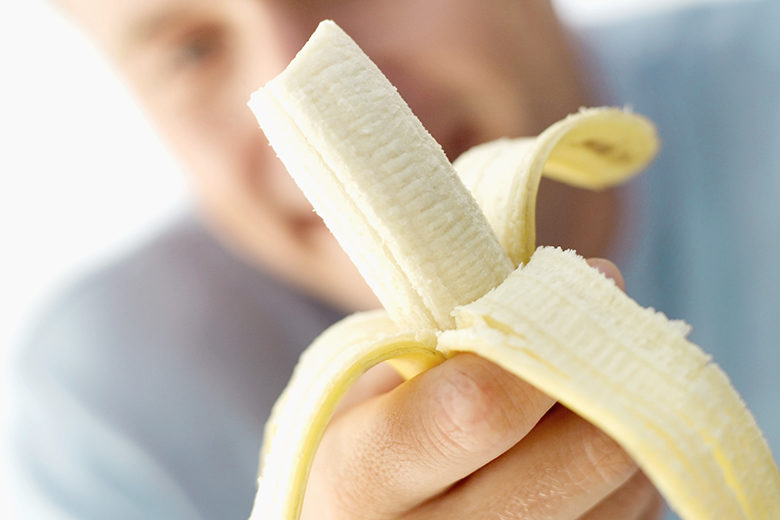
When people find out I'm a dietetics student, I inevitably get asked about sugar — but not about added sugars in candy or cake. Instead, they want to know about the sugar found in fruit.
Due to mixed messages in the media and from "wellness experts" providing information that is not scientifically sound, I have to set someone straight nearly every week on the myth that eating fruit is unhealthy. After speaking with other friends and colleagues in the field, I know I'm not alone! Here are three common myths about one of my favorite fruits, bananas. ![]()
Myth #1: No Different from a Candy Bar, a Banana Contains Too Much Sugar
Your average medium banana contains 14 grams of sugar, which admittedly is not a small amount. One ounce of dark chocolate also contains 14 grams of sugar. The difference is that a banana's sugar is entirely natural, while the chocolate's sugar is all added sugars.
What makes them different? Bananas contain, on average, 3 grams of fiber, which slows the absorption of sugar into our blood. Some of this fiber comes from pectins, which further slows the digestion of carbohydrates, lessening a blood glucose (sugar) spike. If you've been diagnosed with diabetes or have been told that your blood sugar is a little high, you can still enjoy bananas. To lessen the sugar spike, pair a banana with protein and healthy fat such as a nut or seed butter or yogurt.
But keep this in mind: Even if you do snack only on fruit, it's very different from eating a candy bar! A banana contains tons of other vitamins and minerals, fiber and even over 1 gram of protein!
Myth #2: Bananas Are Fattening
At around 100 calories, a banana contains less than half a gram of fat. It is true that when excess sugar is digested and absorbed it can be stored as fat, but if you're eating when you're hungry and not overeating, this will definitely not happen from eating a 100-calorie banana.
Myth #3: If I Choose to Eat Fruit, a Bananas Is a Bad Choice
Why bananas, specifically, get a bad rap in the fruit world, I'm not too sure. Their stats are pretty similar to many other popular fruits. For instance, like a banana, a medium apple contains around 100 calories and less than 0.5 grams fat. The apple also contains 19 grams of sugar and less protein than a banana. And one cup of seedless grapes provides 23 grams of sugar, with less fiber and less protein than a banana. In addition, bananas contain:
- 17 percent daily value of vitamin C, which is vital for strong immunity, youthful-looking skin and fighting oxidative damage.
- 422 milligrams or 12 percent daily value of potassium, which is important for heart health, lowers blood pressure, reduces the risk of stroke and blocks the absorption of dietary cholesterol.
- 22 percent daily value of vitamin B6, which is a vital co-factor in the production of feel-good hormones serotonin and norepinephrine.
Here's the bottom line: Yes, there are fruits that contain less sugar than a banana (such as berries, citrus fruits and melon), but bananas are portable, inexpensive and highly accessible. I'll be snacking on a banana today … care to join me?




